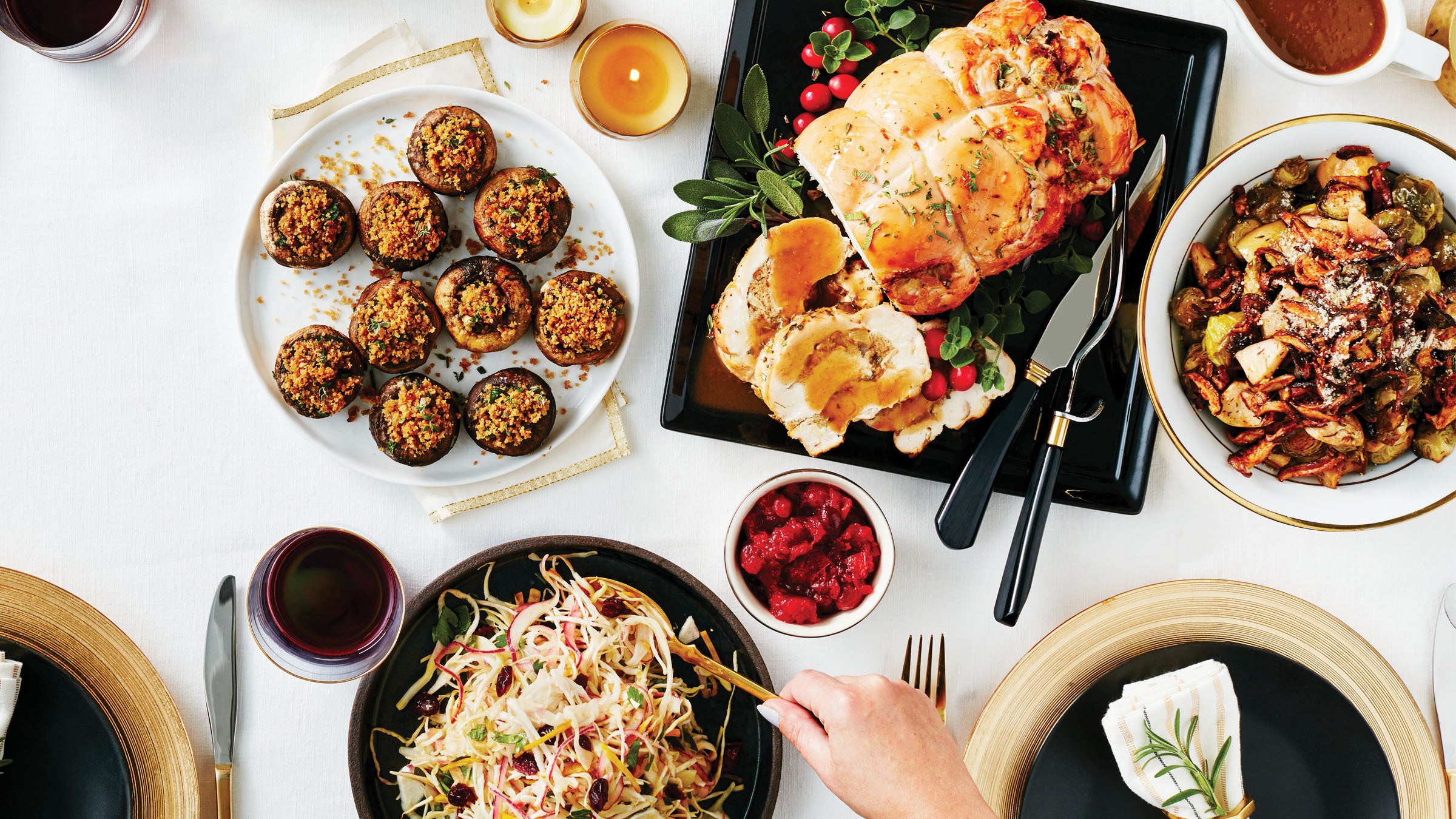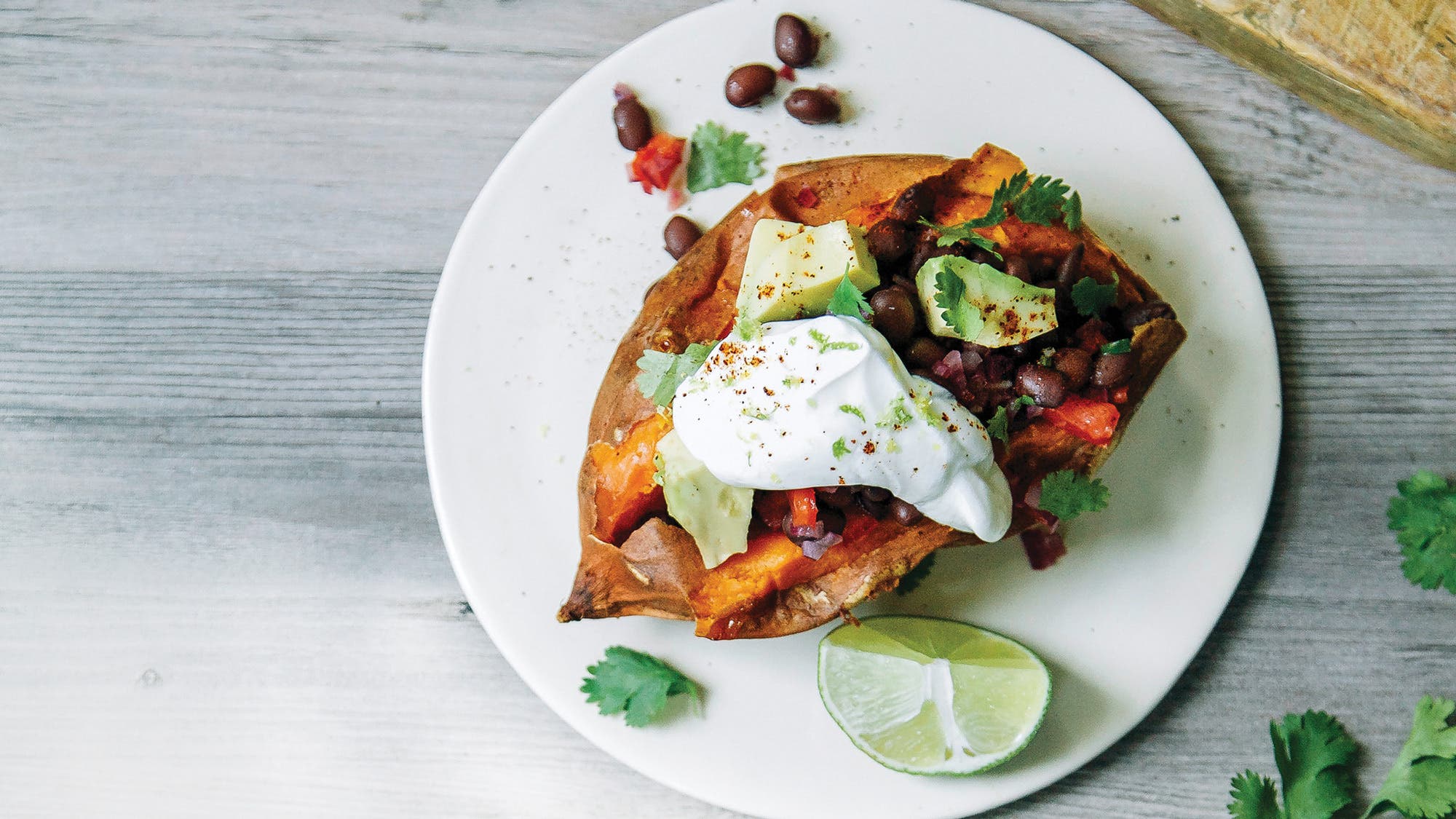Build a Healthier Holiday Spread

1. The Nutrient: Oleic acid
Oleic acid, a monounsaturated fatty acid, may help prevent brain cancer, researchers recently revealed in the Journal of Molecular Biology.
The Dish: Olive oil cake made with extra-virgin olive oil, which has high levels of oleic acid.
2. The Nutrient: Dark chocolate
After studying more than 55,000 people in Denmark, researchers discovered that moderate chocolate consumption can help reduce the risk of heart flutters in women.
The Dish: A square or two of dark chocolate after dinner.
3. The Nutrient: Probiotics
Probiotics have a place on the holiday table because of the way they can lower fasting blood sugar and reduce the risk of developing gestational diabetes, a recent study in the British Journal of Nutrition shows. Working with nearly 200 women from New Zealand, researchers found that a probiotic used to make fermented milk products (Lactobacillus rhamnosus HN001) can drop the chances of gestational diabetes by 68%.
The Dish: Dips made from yogurt containing Lactobacillus rhamnosus HN001. Try Radishes with Minted Yogurt Dip recipe.
4. The Nutrient: Iron
According to the Academy of Nutrition and Dietetics, iron deficiency is the leading cause of anemia and the most common nutrient deficiency in the US. The World Health Organization reports that more than 30% of the global population suffers from anemia, symptoms of which include fatigue, pale skin, brittle fingernails, irritability, dizziness and headaches – the last things anyone wants to feel during the holiday rush. While researchers are finding new ways to fortify bread and other wheat-flour products with iron, you can boost your iron intake by consuming lean meats and fish (your body absorbs two to three times more iron from animal sources than from plant sources).
The Dish: The star attraction, turkey; each 3-oz serving has 1.2 milligrams of iron.
5. The Nutrient: Good fats
Here’s the skinny on healthy fats: They may help reduce harmful gut bacteria and improve symptoms of Crohn’s disease (which affects about half a million Americans), according to a new report by researchers at Case Western Reserve University School of Medicine. While further study on humans is needed, even low concentrations of coconut oil and cocoa butter were found to be beneficial.
The Dish: Popcorn drizzled with coconut oil.
6. The Nutrient: Resveratrol
Penn State scientists have now shown that resveratrol, the compound found in grapes, may kill colon cancer stem cells by 50%.
The Dish: Grapes for a dessert.
7. The Nutrient: Whole grains
Lower your risk of early menopause by upping your intake of whole grains; the American Journal of Epidemiology reveals that there’s a connection between the two. In the report, the authors found a 16% lower risk of early menopause among women who ate the most vegetable proteins, a category that included whole-grain bread. (See page 25 for more details about the study.)
The Dish: Butternut squash and whole-grain salad (made with freekeh, brown rice or Kamut).
8. The Nutrient: B vitamins
British scientists recently discovered that symptoms of schizophrenia, such as hallucinations and delusions, can be reduced through B vitamins. “This could be an important advance, given that treatments for this condition are so desperately needed,” said lead author Joseph Firth in a press release, whose study was published in Psychological Medicine.
The Dish: A starter of wild eastern-caught raw oysters; a serving of six has 16 micrograms of B12 and 0.1 milligrams of B6.
9. The Nutrients: Coffee and tea
Drinking coffee and herbal tea can help prevent hardening of the liver, say researchers involved with the long-term Rotterdam Study. “The consumption of herbal tea and daily consumption of three or more cups of coffee was related to the presence of lower liver stiffness, independent of a great number of other lifestyle and environmental factors,” they write in the Journal of Hepatology.
The Dish: An after-dinner cup of coffee or tea.
10. The Nutrient: Vitamin A
Low levels of vitamin A could increase your risk of developing tuberculosis (TB), finds a recent study by Harvard Medical School investigators. After studying the blood levels of more than 6,000 people in Peru, the team discovered that those who live with others afflicted with TB and are deficient in vitamin A are 10 times more likely to develop the disease themselves. “This is one of the strongest risk factors reported in a large epidemiological study in years,” says senior author Megan Murray, MD, in a press release. The findings were published in May 2017 in Clinical Infectious Diseases.
The Dish: A side of baked sweet potatoes (1/2 cup has 19,217 IU of vitamin A).
